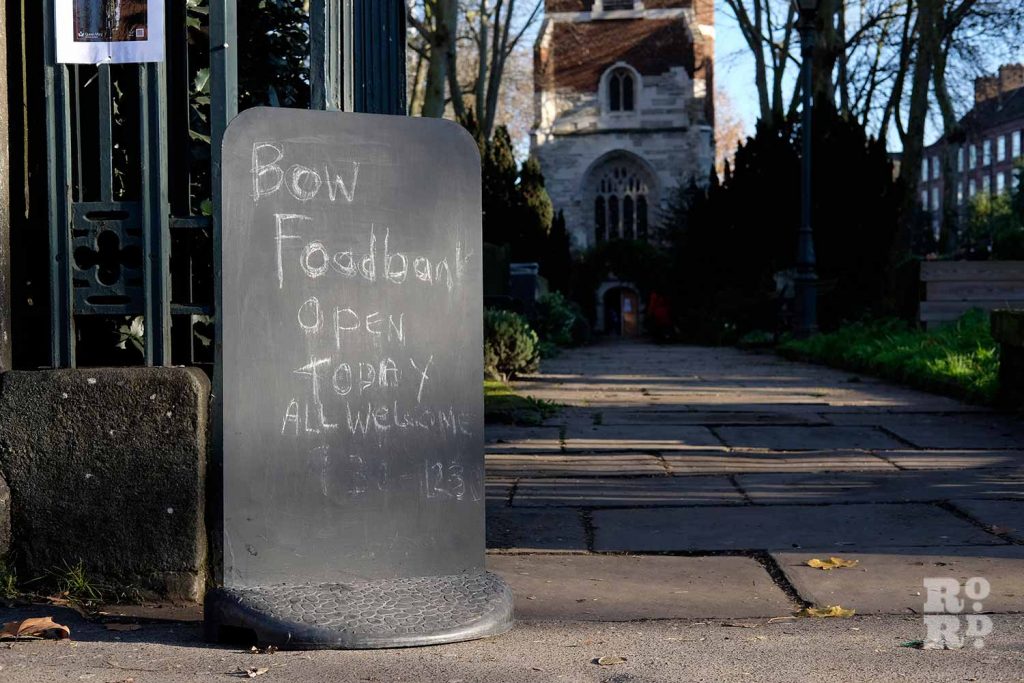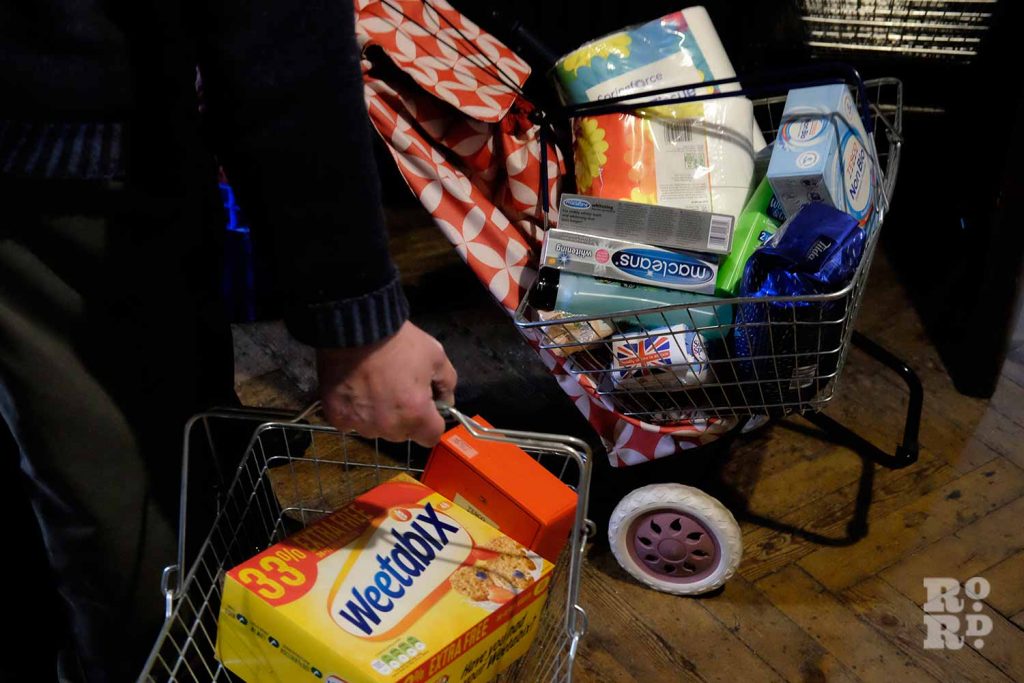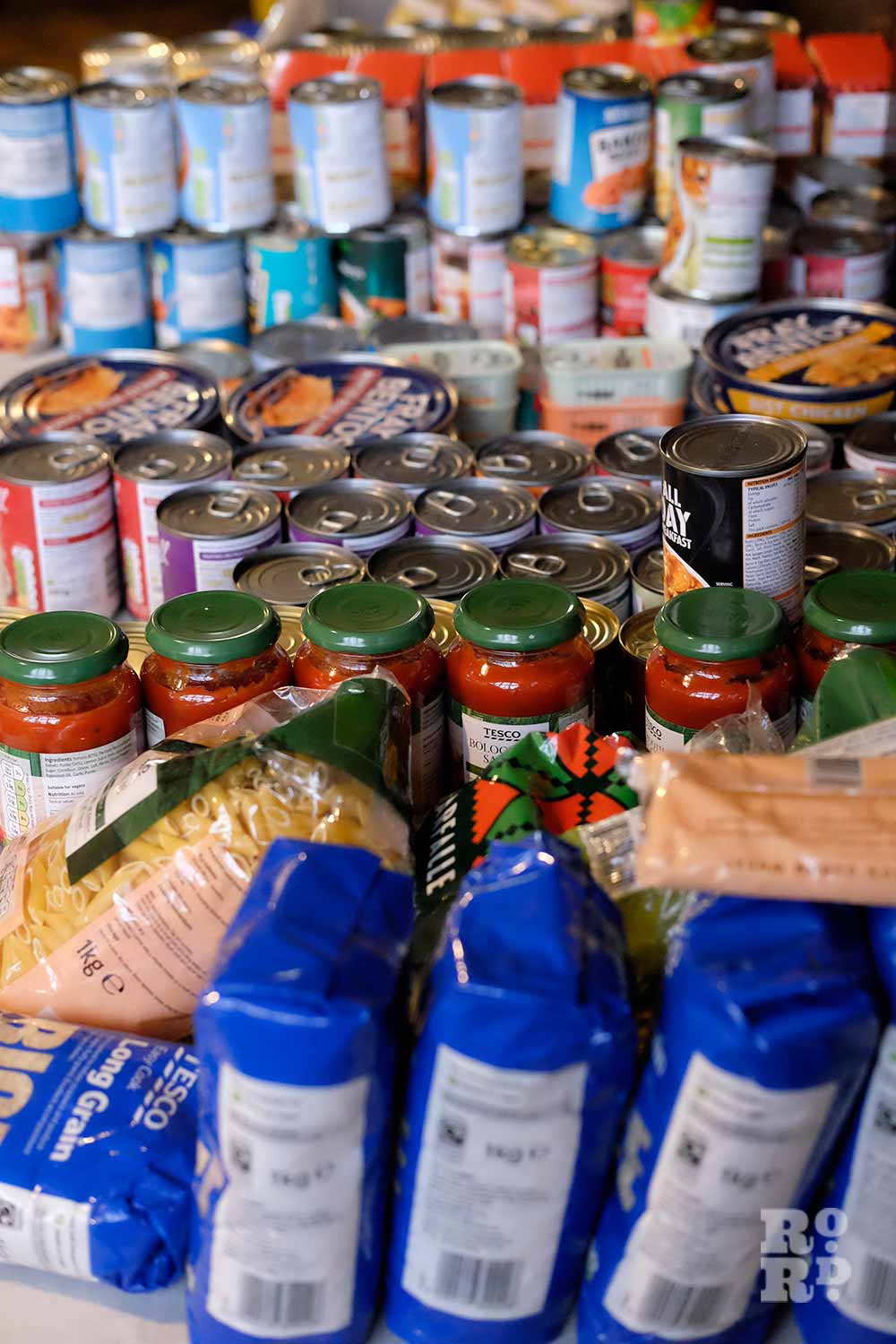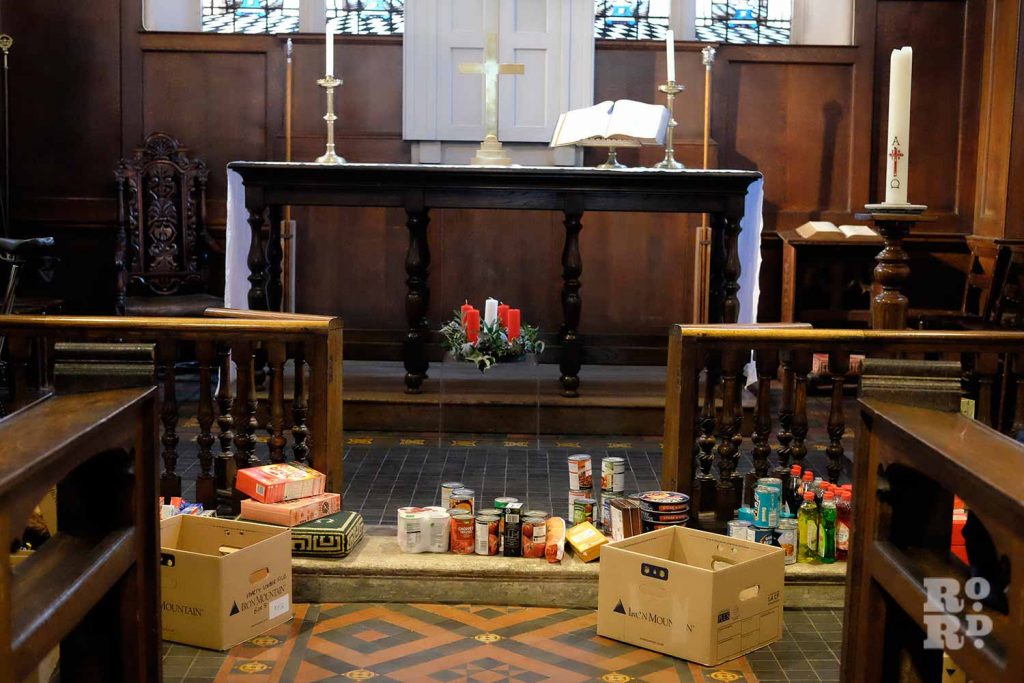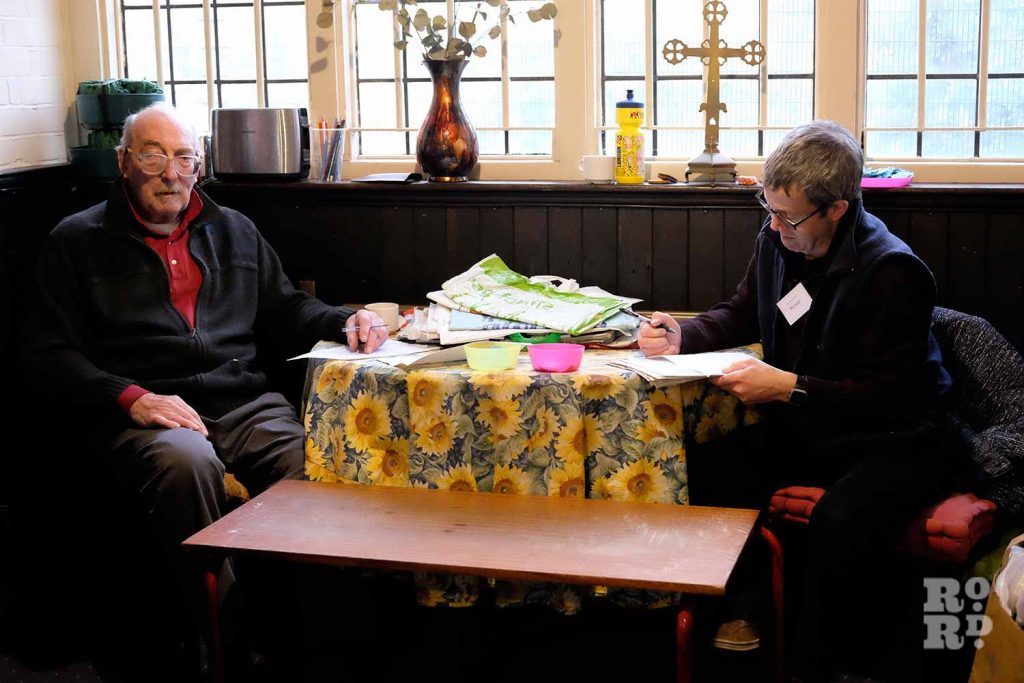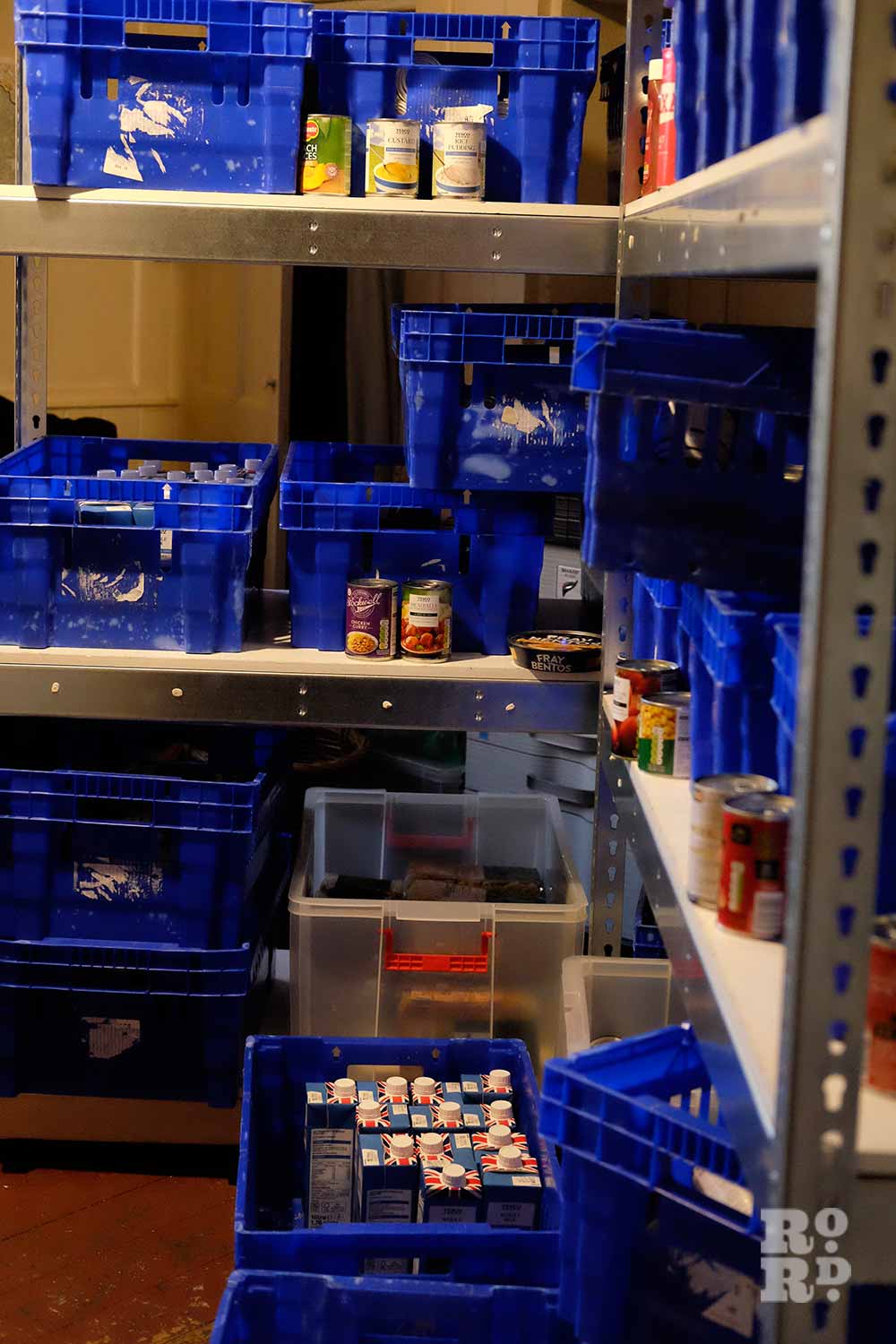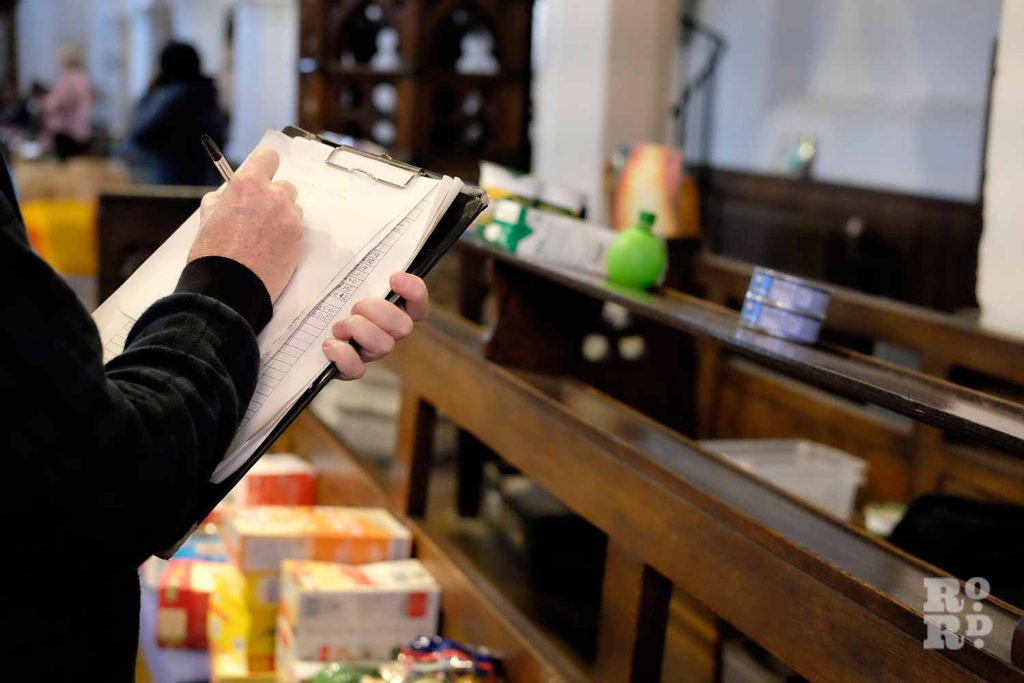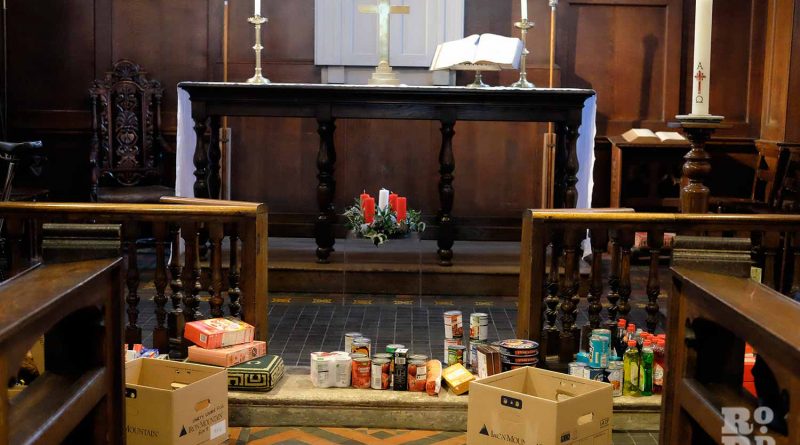Former food bank user Ron Whelan on the plight of the homeless
Ronnie Whelan, 54, is searching for himself. A one-time user of the Bow Foodbank, he has volunteered there for ten months and counting. Having lived most of his adult life on the streets, he is no stranger to the plights of those who pass through the doors of Bow Church every Monday in search of sustenance.
You wouldn’t think it to look at him. Whelan, who preferred not to be photographed, carries himself with watchful reserve, a warm Scottish accent breaking the surface of his silence. He is well liked at the Bow Foodbank and roundly regarded as an excellent volunteer. As has been a running theme in his life, Ronnie Whelan gets on with it.
‘We’ve all got our own little reasons for being here,’ he says, scanning the Bow Church’s main hall. We speak on a choir stall bench as the foodbank winds down in front of us. ‘A lot of it is wellbeing, on my part especially.’
Whelan has volunteered there since last Christmas. Having returned to Bethnal Green after a stint in southeast London, he needed a one-off food package and found his way to Bow Foodbank. On his way out he doubled back and asked if he could volunteer. He was there the next Monday and has been a mainstay ever since.
There is a sense of giving something back with Whelan, who now also volunteers at Bow FoodCycle down the road. ‘I’m trying to break away from a negative past through a positive future,’ he says. ‘I get positivity here.’
He hails from Edinburgh, but left when he was 10 years old. The years that followed fluctuated between homelessness and prison. Like his father, Whelan had a weakness for drink. ‘It’s an education on the street,’ he says. ‘I’ve always been an outsider. I’ve always stood my ground.’ It is only since the turn of the millennium that Whelan has been able to carve out a more secure existence, and even now it is precarious.
Whelan knows better than most what life is like on the fringes. It’s a world he understands, and now he does what he can to make it more tolerable for others. For volunteers as well as users, Bow Foodbank serves as a desperately needed reassurance that strangers can and will support each other, even if the state won’t.
‘Coming here, for me, is protection,’ he says.
Bow Foodbank has been running for five years now. Every Monday Bow Church transforms into the unlikeliest of shopping centres, providing essential foodstuffs to those unable to afford them. Each client is allowed 15 ‘shops’ before they must move on.
It is part of an aggressive trend in Britain. There was record usage of UK food banks this year, reflective of a year on year increase. There are around 2,000 food banks in the UK, of which 1,200 are run by the Trussell Trust. The trust alone gave away 1.6 million food parcels between April 2018 and May 2019, a 19% increase on the year before.
Bow Foodbank is independent, but Whelan has noticed a similar uptick in users over the last year. More and more people are struggling. Volunteers have risen to the challenge with an astonishing blend of doggedness and grace. It’s a familiar resolve to Whelan. He has spent most of his adult life in East London. ‘When I got here it felt like I was back home, because everyone wants to lift a finger for you.’
As we talk the church hall hums like a well-oiled machine. It has to. Whelan himself brings a certain no-nonsense discipline to the system. The food bank operates on goodwill from top to bottom, and Whelan does not suffer fools lightly. Anyone taking more than their fair share is ultimately depriving someone else of theirs, and he’ll say so. ‘I tell ‘em straight,’ he laughs, and you believe him.
Such transgressions are rare, and Whelan understands the desperation they can stem from. Bow Foodbank and its volunteers have become essential to hundreds of East Londoners, but their triumph is also the state’s failure.
‘It’s a shame it has to be places like churches that have to do these kinds of things,’ Whelan says. An edge creeps into his voice. ‘What’s the government doing? There’s no point throwing a couple of quid at the problem.’
It seems deprivation has become the new normal. There are more holes in the safety net, and fewer opportunities to climb out of hard times. As someone who has lived on the fringes most of his life, Whelan has been uniquely placed to see the shift. An estimated 726 homeless people died in England and Wales last year, a record annual rise of 22%, and it doesn’t surprise him at all.
Whelan knows instinctively that drugs are a huge contributing factor. There is no way out. ‘If you’re going to do a detox that’s fine,’ he says, ‘but six weeks isn’t going to cure anybody. Where’s the six month rehab after that?’ Half measures save money, but they invariably leave vulnerable people treading water. Small wonder so many sink.
Whelan himself lives on benefits, his favoured trade of landscape gardening hindered by back and leg injuries. Seeing him at work in the Bow Foodbank there is no doubting his industriousness. He, like many of the food bank’s users, simply doesn’t have a viable path to self-reliance. Training and courses have never led to full-time employment.
The growth of the ‘precariat’ class has made food banks the new normal in the UK. They’re too common now to be taboo. ‘I think there was a stigma, but now it’s just everyday life,’ Whelan says. ‘We still rely on the system because we don’t know anything else.’
As well as financial strain, Whelan recognises a spiritual one in those served by Bow Foodbank. Impermanence is its own burden. ‘It’s a constant battle for me, living where I am,’ he says. ‘I feel like I can’t build a home because I don’t know where I could be next year, or the year after.
‘That’s something I’ve craved all my life, somewhere I can call home, and can build a home. A lot of people are in that boat.’
Whelan is clearly drawn to work that supports those who are struggling. It gives voice to the better angels of his nature. ‘The more I can help myself, the more comfortable I feel, the happier I’ll be to help other people in the right direction as well,’ he says.
‘People keep telling me I’m doing the right thing, that I know exactly what to do. Well, I don’t, because I don’t know who I am. That’s what I’m doing. I’m out there searching for the real Ronald, not the Ronnie.’
He says he’s getting closer, and you can believe it. Whelan would be the first to admit he’s no saint, but he is one of a legion of guardian angels at Bow Foodbank, where the lost protect the helpless while the powerful turn a blind eye.
For details on how to volunteer at Bow Foodbank, visit their volunteer page. Alternatively, you can get involved with their Christmas Appeal to provide food bank users with Christmas treats this year.
